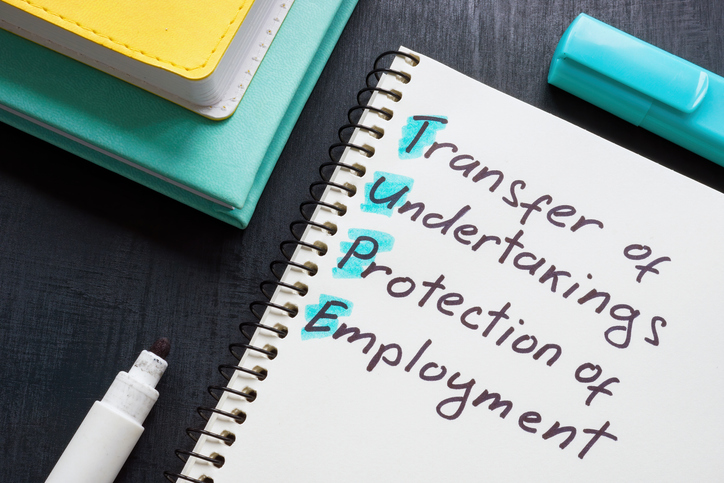This article considers the recent Employment Appeal Tribunal (EAT) decision in Sean Pong Tyres Ltd v Moore [2024] EAT 1 and whether liability for a discrimination claim will transfer under TUPE where the Claimant does not transfer.
Many will be familiar with the “automatic transfer principle” under the Transfer of Undertakings (Protection of Employment) Regulations 2006 – more colloquially referred to amongst HR professionals and lawyers alike as TUPE.
For those not familiar, a business transfer or a service provision change can trigger a transfer of all rights, powers, duties and liabilities under or in connection with any employees who transfer to the transferee, or “new employer”. This concept includes an employee’s statutory rights, contractual rights and an employee’s right to bring a claim against their employer for unfair dismissal, redundancy or discrimination.
The EAT has recently considered whether liability for a harassment and discrimination claim transfers to a new employer where an alleged perpetrator has transferred to that new employer under TUPE, but the claimant did not. A similar case had already been considered in Doane v Wimbledon Football Club where it was determined that an employer’s vicarious liability for the negligence of a transferring employee could pass to a new employer under TUPE. This case was referred to by Sean Pong Tyres on appeal to the EAT as below.
In this case, Mr Moore resigned from Sean Pong Tyres (the “Respondent”) and brought a claim alleging he had suffered harassment and discrimination perpetrated by another employee, Mr Owusu. Mr Moore alleged that the Respondent was liable under the Equality Act 2010 (EqA 2010) for Mr Owusu’s actions. A few months after the actions complained of, Mr Owusu’s employment transferred to another Company in what the Respondent later described as a TUPE transfer. This alleged transfer was first mentioned at the hearing when the Respondent sought to amend its response to argue that liability for Mr Moore’s claims had transferred to the new employer.
The tribunal refused the application by the Respondent to amend its response. The Respondent subsequently appealed to the EAT relying on the case of Doane v Wimbledon Football Club. It argued that liability of an employer to a claimant employee under the EqA 2010, is a liability of the new employer, under or in connection with the perpetrator’s contract. That liability would therefore transfer under TUPE if and when the perpetrator transferred, even if the Claimant themselves did not transfer.
The EAT dismissed the appeal and made it clear that liability which arises under the EqA 2010 would not pass to a new employer unless the claimant’s employment also transferred. The EAT noted that whilst the County Court’s decision in Doane was highly persuasive in relation to vicarious liability in tort, but it was not applicable to the position in respect of an employer’s liability under the EqA 2010.
The EAT further commented that an employer’s liability under the EqA 2010 will only extend to the claimant employee and only arises in connection with the employer’s contract with the claimant employee. To have argued that TUPE transferred liability to the new employer, Mr Moore would have had to bring a claim against the new employer with whom he did not have an employment relationship. Claims under part 5 of the EqA 2010 can only be made against the Claimant’s employer, and therefore he would have had no right to bring such a claim.
What does this mean for employers involved in TUPE transfers?
Apart from the case of Sohail v WFS Ground Handling Services Ltd and others ET/2400126/2017 which concerned similar facts to those in Sean Pong Tyres but for which there was no published decision, it is the first time that this matter has been considered in any detail and that any commentary has been provided.
This decision will come as a relief to employers who may have otherwise found themselves liable to individuals who they have never employed. This said, if, during the course of a transaction to which TUPE applies, an employer has the ability to conduct a thorough due diligence exercise and investigate any potential claims, it does raise the question of whether it might it some circumstances be advisable to extend the exercise to a wider group of employees and not just those who are transferring. In practice, this might not be possible or practicable, but particularly where there are live tribunal claims within the transferring business, a buyer may prefer to have some knowledge of them, to allow them to consider whether they will require any warranties/indemnities in transfer documents to ensure additional protection from liability of this nature.
If you require any advice on the issues raised in this article, please contact [email protected]

